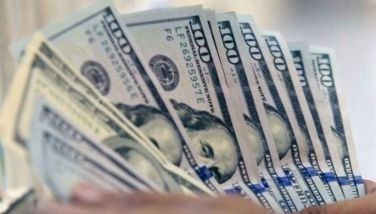Scammers find plenty who are desperate and greedy

Are victims of scam pursuits, which have become more intricate and creative these days, simply desperate? Or are they just too greedy? Or perhaps, they are a little of both – which could explain why losers indulge in their flaky business propositions, ending up badly burned.
We seem to be getting an extra huge number of scams lately, and they have been appearing in the most surprisingly ingenious packages. Many now use the Internet to project their image — complete with impressive motivational video streams — as a respectable company or investment house and to entice people to invest in their products.
I am not talking here about the Frankswiss debacle. This is an out-and-out Ponzi scheme that Wikipedia defines as “a fraudulent investment operation that involves paying abnormally high returns (‘profits’) to investors out of the money paid in by subsequent investors, rather than from net revenues generated by any real business, named after Charles Ponzi.”
Getting caught indulging in the Frankswiss challenge was plain greed. For how could one even imagine that a financial proposal that promises a four-to five-percent net profit a day (not a week, not even a month) to be sound? Unless of course, the intention was to just quickly dip a finger, earn a few bucks, and at once withdraw all investments before everything collapsed. In such cases, however, the temptation to stay longer becomes greater as the promised returns materialize. Of course, at some point of time, sooner than later, the inevitable collapse happens.
In Frankswiss’ website (sorry, but all their three sites are now down and inaccessible), the company had the typical big words about being “millionaires” and having “financial freedom.” Of course, we all know that this ended in grief for many of those who realized their folly too late.
Hyip
What we intend to highlight today are the more plausible schemes, seemingly safe havens of investing. They are marketed as high yield investment portfolios that give more than the current pasty returns that most banks and financial institutions offer.
In the case of Performance Investments Products Corp., a SEC-registered Philippine firm with a website that lists a subsidiary in
The Securities and Exchange Commission in the
Quietly… and slowly
The debacle involving Performance, where its owner (of Singaporean citizenship) had gone missing together with over an estimated $200 million of investors’ funds, is clearly a case of weak regulation. The SEC had admitted it had been quietly investigating the nine-year old Performance after a number of complaints were received.
And yet, the Philippine regulator seems to have failed to act quickly knowing fully well that the company under scrutiny was already operating beyond its legal bounds.
Investors of Performance were asked to put in at least $40,000 in a trading scheme that bets on gains or losses of paired currencies. Returns though were at a modest but guaranteed 12 percent per annum. The money was parked in various offshore banks, although it was later declared to have been emptied at about the time that the owner disappeared.
There is a big possibility that the Singaporean owner found himself losing money in the management of the funds, especially with the recent volatility of currencies not only in Asia but also in the US and Europe. Heck, even the Australian dollar and Japanese yen are experiencing movements that are hitting record-levels.
Asian haven
There are other fraudulent investment schemes based on cyberspace subscriptions that have been reported to government authorities. Action on charges against those who had perpetuated the deceitful marketing campaigns – either to invest or buy property — has also been painfully weak and slow.
The Philippines is quickly becoming a haven for this kind of unscrupulous operators, and the primary reason is the weak, inappropriate or sometimes non-existent regulatory edicts on doing business, more so if involves the web. This is further aggravated by the presence of government agencies that consistently fail to ferret out criminals.
Catching and prosecuting
Our government agencies have so far been quick to issue advisories to the public. The Bangko Sentral ng Pilipinas and Department of Justice have both released cautionary warnings about dealing with investment schemes that seem dubious. Warnings are good. But what about catching and prosecuting those perpetrators? While most of the victims in the Performance case were reportedly those living in exclusive villages plus a sprinkling of wealthy nationals in neighboring Asian countries, other scams are targeting our overseas Filipino workers and their families.
With over $14 billion in remittances expected this year, this opportunity is definitely attracting the best and the worst kinds of people. While it is nice to hear advice about what to do when victimized by scams, it is infinitely more comforting to know that there is someone out there running after – and catching – those scammers.
Where to hone poker skills
Philippine Poker Tour (PPT) is the leading proponent of non-wager poker skills competition. PPT and Poker Club of the
With the growing popularity of the game, PPT launched the first million-peso competition in April 2006, then in December 2006, and lately, last July. Derek Bautista, Cris Parker and Kent del Rosario are the three members of the PPT poker millionaire circle. Today, PPT takes another step in promoting non-wager poker skills competition by opening the doors of its official clubhouse, THE PLAYER’S DEN (located at 1786 A. Mabini, Malate,
This will be the venue where players can hone their poker skills thru daily competitions. These are NON-WAGER tournaments where skillful players are rewarded.
For more details visit the official website of Philippine Poker Tour, www.PhilippinePokerTour.com or call the PPT Secretariat at 812-0153, 0926-645-2956, or 0920-921-8891.
Should you wish to share any insights, write me at Link Edge, 25th Floor, 139 Corporate Center,
- Latest
- Trending




























